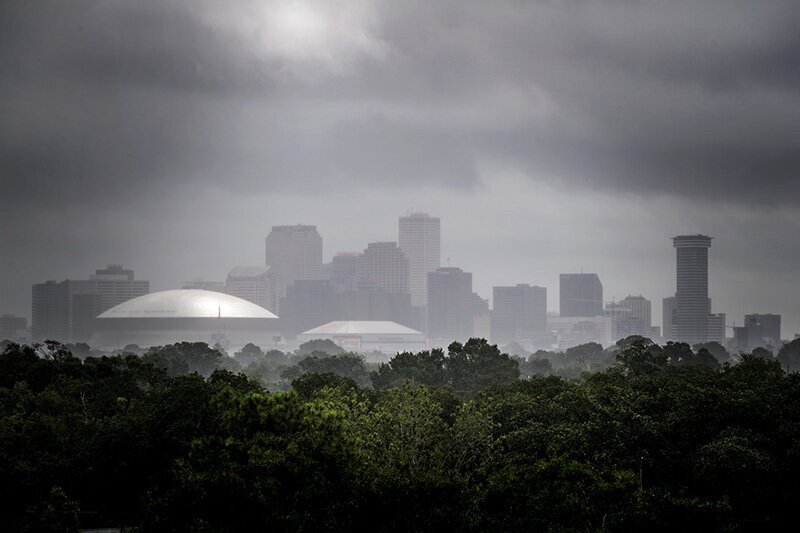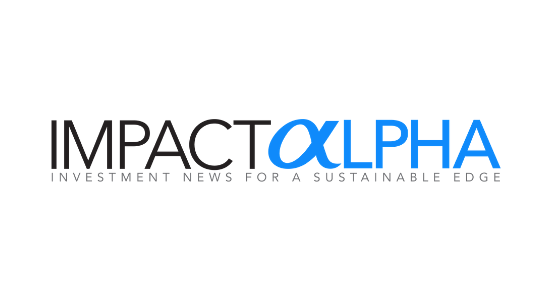
Writings

The Venture Alchemists: How Big Tech Turned Profits Into Power
-
Published by Columbia University Business Press, and with 1,902 references and citations that were professionally fact checked, the research underwent academic peer review, the faculty review board, and the Press editorial review committee before publication approval.
The Venture Alchemists was deemed a “masterfully researched book” (Walter Isaacson, Author of Elon Musk and Steve Jobs and National Humanities Medalist), “a provocative, deeply researched book that is frankly jaw-dropping in places” (Anne-Marie Slaughter, CEO of New America), and “An impressive work of research and intellectual reflection” (Kirkus Reviews).
-
Since its publication on May 14, 2024, The Venture Alchemists has received widespread praise from readers.
Susan Larson (host of The Reading Life, WWNO-FM, NPR/New Orleans):
“This book was such a massive undertaking! It’s a financial history, it’s a tech history, a group biography, a portrait of social change. So many threads in American society are writ large in this story. It’s not just the story of tech. It’s the story of social change, racism, misogyny, class division, you could just list every issue that this book illuminates. This book is simply a knockout. Such clarity and intelligence, such insight into character, such a fascinating overall look at the social context that made all this change possible, and such unexpected humor — it was pure reading pleasure.”
Rose Jackson, Director of the Democracy + Tech Initiative, The Atlantic Council:
“The Venture Alchemists dispels the myths that have clouded our understanding of technology's true impacts. After reading this book, you will no longer think that ‘technology is neutral,’ because people build technology and technology shapes our lives. In an era of rising polarization, inequality, and uncertainty, this book offers a fresh perspective and call to action. It challenges blind hero worship of modern entrepreneurs, urges all of us to reclaim our seat at the decision-making table, and reminds us of our agency in creating genuinely awe-inspiring new technologies that serve our democracies and communities, and not the other way around.”
Tomicah Tillemann, President, Project Liberty:
“Rob Lalka’s masterful storytelling unveils the inner workings of tech giants, human struggles, and ethical dilemmas. Beyond its gripping narrative lies a timely reflection on the importance of understanding the impact of technology, the value of personal data agency, and the urgent need for action from leaders and citizens alike. The Venture Alchemists is not just a story; it is a rallying cry to move beyond our current age of digital feudalism.”
-
The Venture Alchemists was Axiom’s 2025 Gold Medal Award Winner for Business Ethics - Future Trends and was the #1 New Release in Venture Capital, Business Ethics, and Computers & Tech, all three categories where it was listed. It was named one of the 22 best business books of 2024 according to the Society for Advancing Business Editing and Writing.
Since publication, the book and its research have been cited in Newsweek, Forbes, Rolling Stone, Barron’s, NBC News, The Guardian, and other publications.
-
The book has received significant critical acclaim.
Kirkus Reviews called it “An impressive work of research and intellectual reflection,” adding this praise: “The body of work addressing this subject now seems inexhaustible, but this book must count as among its most clear-eyed, well researched, and morally uncompromising examples.”
Foreword Reviews stated that: “The book’s analyses are complex, weighing pros and cons of each subject. Some of the portraits are unflattering; all avoid oversimplification and generalizations. Innovators who are often deified or vilified are rendered as dimensional beings with human motivations herein. And the book takes honest account of the field’s issues alongside its optimistic pushes toward more ethical and accountable business practices, calling for nuance and understanding in its suggestions for a better path forward.”
MIT Technology Review praised Lalka’s accomplishments as a “thorough and tenacious researcher” and commended the book for “deflating the myth that these entrepreneurs were somehow gifted seers of (and investors in) a future the rest of us simply couldn’t comprehend or predict,” while exposing “the price we’ve paid in handing over unprecedented power to Big Tech—and explain[ing] why it’s imperative we start taking it back.”
Recipient of the A.B. Freeman School of Business Award for Excellence In Intellectual Contributions,
2018-19, 2019-20, and 2023-24
Lies, Damned Lies, and Startups: Reexamining America’s Promotion of Democracy, Entrepreneurship, and Technology in Muslim Communities
On June 4, 2009, President Barack Obama delivered his “A New Beginning” speech to the global Muslim community in Cairo, Egypt. The speech’s fifteenth anniversary came at a moment of renewed conflict in the Middle East and of intensified criticism of U.S. foreign policy among many Muslims at home and abroad. The Berkley Center invited me to write this essay to reflect on my experience at the U.S. State Department on entrepreneurship, innovation, and economic development. It was published 15 years after the speech, in June 2024.
Fifteen years before, arriving in the Oval Office at a low point for the United States’ international image, Obama sought to foster “a new beginning,” particularly withs Muslims around the world. In Cairo he called for a “sustained effort to listen to each other; to learn from each other; to respect one another; and to seek common ground.” His speech addressed seven challenging issues that had strained U.S.-Muslim world relations: violent extremism, Israel/Palestine, nuclear weapons, democracy, religious freedom, women’s rights, and economic development.
The Cairo speech was greeted with significant enthusiasm around the world, and Obama won the Nobel Peace Prize later that year. The speech sparked a flurry of new and revitalized U.S. government activity in Washington and at U.S. posts overseas. However, a public narrative soon began to develop that the New Beginning was just a speech without any practical impact. Today the speech is largely forgotten, but this fifteenth anniversary provides a moment to consider the Cairo speech’s lessons and legacies afresh.
The Berkley Forum asked (and I tried to answer) these questions: What is the legacy of the speech, particularly as it shaped how the U.S. government engages with Muslim and other religious audiences? What lessons might current officials learn from the successes and failures of the broader New Beginning? What contemporary relevance does the New Beginning have as the United States continues to confront the same set of challenges Obama addressed in Cairo?
Opinion article regarding COVID-19 published on March 25, 2020. Discussing the severity of the disease based on the New Orleans experience, I warned that it was “the witch's brew: asymptomatic for up to two weeks, highly contagious and all of humanity is immunologically naïve to it.”
I argued for clearer messaging and more decisive leadership in the early months of the COVID crisis. I noted that when Italian politicians sent mixed messages about the severity of the crisis, declaring victory prematurely and relaxing restrictions too soon, people continued to socialize, and Italy's crisis worsened. Their doctors called this "The Italian Lesson."
This “Italian Lesson” could also be seen, as early as March 2020, in what I called “the Louisiana Lesson”: “Those who would give up essential safety, to purchase a little temporary economic prosperity, ultimately receive neither safety nor prosperity.”
Commentary on Opportunity Zones published on October 3, 2019, co-authored with Howard W. Buffett and Mark Newberg. Arguing that OZs were designed to spur tax-incentivized investments that benefit underserved communities, we explained that the incentive is being misunderstood as a program and not a market.
Noting that the earliest OZ investments raised important concerns about being manipulated by the wealthy for their own gain, we addressed the importance of efforts focused on impact.
We then explained that the key to success for Opportunity Zones will be addressing these concerns in order to encourage capital to flow into communities and create the outcomes that justified this tax incentive in the first place.
This commentary was republished with permission by Real Clear Markets.
Opinion article published on January 6, 2020, about the Amazon HQ2 bidding war among 238 economic development experts from across the country, which I deemed “Amazon’s Great Data Caper.”
Thousands of public officials nationwide dedicated countless taxpayer-funded hours to the HQ2 sweepstakes, and the outcome was a privatization of that information for Amazon. Each of those bids included a treasure trove of information on strategies for workforce development, transportation, housing, education and infrastructure. I explained that Amazon “now has intimate knowledge of 238 communities' development plans, which it acquired nearly effortlessly and for free.”
I further addressed several difficult trends: U.S. entrepreneurial activity is nearing a 40-year low, while the post-recession recovery was not evenly distributed nationwide. In fact, most places between the coasts never felt substantial gains during the post-recession economic recovery. Since 2011, nearly 60 percent of new businesses were formed in only 25 percent of the most prosperous ZIP codes. Everywhere else, there were more companies shutting down than being started.
This essay appeared in the official B-Corporation blog, B The Change, on October 19, 2019, the day that Public Democracy, Inc., brought to market one of the largest datasets ever designed to achieve B Corp principles.
As Public Democracy’s board chairman, I highlighted three key lessons about how Data For Good can make all data better and raised concerns about how Cambridge Analytica used data that was designed to exploit our insecurities and impulses.
Yet, as the Public Democracy data showed, there is an alternative — through better data, and the more meaningful AI it creates — to empower individuals, improve communities, and advance the common good.
In addition to the essay published by B The Change, the unabridged version can be accessed on Public Democracy’s Medium site.
Commentary piece published on June 26, 2019, which was co-authored with Howard W. Buffett and Mark Newberg, that begins with a pressing question about the tax overhaul that was enacted through the 2017 Tax Cut And Jobs Act: “A decade from now, how will we know if Opportunity Zones actually helped people?”
To answer that question, the three of us (with support from our institutions, Columbia, Georgetown, and Tulane) brought together government, foundations, business, and community development experts in a symposium series about the risks of failing to take impact into account early on in Opportunity Zone investments. The results of those discussions were addressed in this piece.
The article was republished with permission by Real Assets Adviser and Accelerator For America.
Opinion article co-authored with Scott Shalett on November 9, 2018, which stressed that while most media coverage has focused on the $6.1 trillion in potential private investment, policymakers and investors should keep the 35 million Americans who live in Opportunity Zones at the forefront of the discussion.
First, we called for reconsideration of the gross income provisions. This matter was further explored in a letter we sent to the IRS and then was later addressed by the the federal government, which clarified the policy to align with our recommendations.
Second, we called for more intentional community engagement upfront. As we concluded: “Our many years of experience in public affairs and community investing have taught us that embedding an impact focus and seeking community input at the outset is far easier and more effective early on, rather than attempting to retroactively measure such non-monetary results or rebuild trust with communities after investments have been made.”
A personal reflection published on August 28, 2015, on the tenth anniversary of Hurricane Katrina, which was written in my role as a member of the World Economic Forum’s United Nations Sustainable Development Council.
I encouraged executives, policymakers, and other leaders to ask: “What are my unsustainable practices and where can we invest now, to save more later? To whom should I listen more, and what community viewpoints are being marginalized? Where has inaction gone on too long? What risks can we mitigate? What is in our collective long-term interest, and where have we left undone the things that we ought to do? In other words: where are there cracks in our levees?”
Opinion article co-authored with Village Capital co-founder Ross Baird on July 16, 2014, which was written before VilCap Investments began to raise funding for its $17.7 million early-stage venture investment fund, which attracted 29 investors, including Steve and Jean Case, Jim Sorenson, and other leading impact investors.
The VilCap Investment Fund would invest in over 100 ventures by the end of the decade, which would go on to raise over $4 billion in follow-on capital, while Village Capital supported over 1,000 entrepreneurs through more than 100 programs in 28 countries. This work helped to advance the mission that we argued for in the article: “to shift their focus away from the high-tech pipe-dream of being the next Silicon Valley; instead, they’re supporting the American Dream, by bolstering entrepreneurs who are solving the problems that impact all of us … Solving our toughest problems through high-impact entrepreneurship certainly won’t be easy. But because that’s what is required to create a healthier post-recession economy for all of us, it will absolutely be worthwhile.”
Other Writings
The Aspen Institute | August 28, 2015
Hurricane Katrina: 3 Objects of the Storm and 3 Objectives of Service
White House Blog | October 6, 2009
TED@State: New Ideas for a Better World
White House Blog | June 3, 2009
The first government sponsored TED Talks
Silicon Bayou News | October 12, 2020
Racial Inequities in Funding and Outcomes: The Data on New Orleans Startups
Silicon Bayou News | September 20, 2019
The GNO Startup Report: An Unflinching Take on the New Orleans Startup Scene
New Orleans CityBusiness | June 28, 2021
Count the costs, New Orleans
New Orleans CityBusiness | May 5, 2020
To address COVID-19, we can learn from our history of innovation
New Orleans Advocate / Times-Picayune | December 25, 2018
Opportunity Zones Can Boost Business Where It's Needed
NewsOne | June 26, 2015
Why Century-Old Statues Could Inhibit New Orleans’ Next Century Of Entrepreneurship
Impact Alpha | September 9, 2021
Climate Risk is Business Risk - and Opportunity
Silicon Bayou News | November 10, 2021
2021: A Watershed Year For New Orleans Startups
New Orleans Advocate / Times-Picayune | February 1, 2022
New Orleans is Well Positioned to Ride the Internet’s Next Wave
Startup Southerner | April 28, 2016
NOLA Tech Community, Let’s Give Opportunity Youth A Chance
New Orleans Advocate / Times-Picayune | February 18, 2018
Entrepreneurs: Step Up to Scale the Shake Up
New Orleans Advocate / Times-Picayune | March 27, 2019
New Orleans is Growing the Next Generation of Startups










